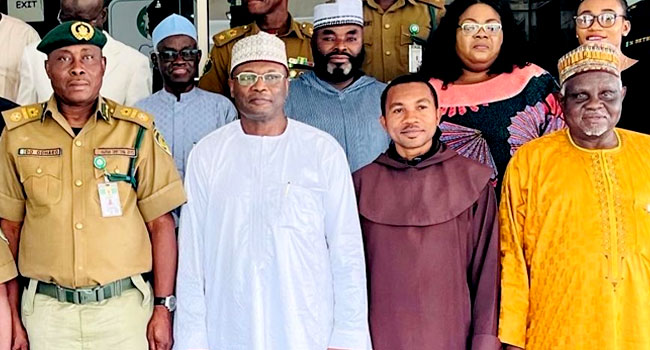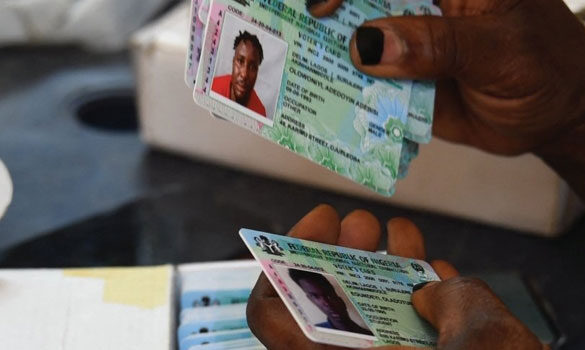 |
| This picture taken on July 19, 2022, shows the leader of the NCoS delegation and the INEC team at the commission’s headquarters in Abuja. |
The Independent National Electoral Commission (INEC) and the Nigerian Correctional Service (NCoS) have resumed discussions on how to address all impediments to the participation of inmates in the electoral process.
Both organisations had been meeting to determine the best way of giving inmates the opportunity to exercise their franchise, a piece published Tuesday on INEC’s website read.
This follows the ruling delivered in 2014 by a Federal High Court in Benin, Edo State in favour of four inmates who decried the inability to exercise their right to vote.
Since the ruling, this has yet to be achieved as the modalities for implementation presented some challenges that the electoral body and NCoS could not immediately address.
According to the article, the effort to actualise inmate voting was renewed when the Comptroller General (CG) of the NCS, Haliru Nababa, represented by the Deputy Comptroller General in charge of Operations, Daniel Odaro, led a team to the INEC Headquarters in Abuja on Tuesday.
While receiving the visitors, INEC chairman, Professor Mahmood Yakubu, affirmed that the electoral umpire was committed to inclusivity, including the rights of inmates to vote during elections.
He pointed out that inmate voting rights have been recognised in Kenya and South Africa, and Nigeria was ready to tow a similar path.
The INEC chief, however, identified some critical issues that needed to be addressed to allow for successful inmate voting.
“We need to discuss the practicalities of how this can be achieved in Nigeria,” he was quoted as saying. “Let me start with the legal framework. Section 12, sub-section 1 of the Electoral Act 2022 lists five qualifications for registration as a voter in Nigeria – because you have to register as a voter before the right to exercise that right is conferred.
“Number one, the prospective registrant must be a Nigerian citizen. Number two, he or she must be 18 years of age, at least. Number three, he or she must originate, reside or work in the local government or be covered by the registration centre or the point of registration. Number four, that citizen of Nigeria must present himself or herself to the registration officer for registration and support. And number five, which is really critical to our discussion today, is that he or she must not be subject to any legal incapacity to vote under any law, rule, or regulation imposed in Nigeria”.
Professor Yakubu added, “This is one area that we need to discuss so that we know the categories of inmates that will exercise the right to vote. Therefore, we need to work things out carefully.
“We want transparency of the process, because everything that we do in the commission, particularly when it comes to the rights of citizens to vote, must be done transparently.”
Other issues raised by the INEC chairman include location of polling unit for Inmates, possibility of political party campaigns in the correctional facilities, voter education for inmates, and observers’ access to correctional facilities to monitor elections if polling units have to be situated in the facilities.
He also stressed the need to address the issues militating against inmate voting as soon as possible.
Earlier, Odaro, explained that the purpose of the visit was to discuss the issue of the inmate voting rights.



